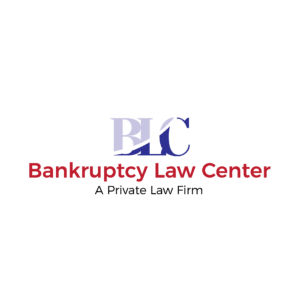Frequently Asked Questions
FREE CONSULTATION
Bankruptcy Frequently Asked Questions
Under Chapter 7 bankruptcy, the majority of your unsecured debts will be completely discharged. However, certain debts, referred as “secured debt” or “non-dischargeable debt,” cannot be discharged through bankruptcy. This type of debt includes child support, spousal support, student loans, tax debt, damages for personal injury accidents, etc. Furthermore, in exchange for eliminating your unsecured debt, the bankruptcy court may sell off some of your non-exempt assets and properties to back pay your creditors. That is why it is vital that your attorney know how to protect your belongings and assets with these exemptions provided in the Bankruptcy Law.
Chapter 13 bankruptcy does not eliminate your unsecured debt, but rather consolidates all of your debt and restructures it into a monthly payment plan to be paid over a period of time, usually three to five years. The amount you pay each month will be determined by how much income you bring home each month, your currently monthly expenses, the amount of your non-exempt assets, and how much of your debt has already been paid off. In addition, Chapter 13 bankruptcy also permits you to keep all of your assets and property throughout the entire process, as well as possibly paying off only a portion of your debt and discharging the rest of the debt owed.
During the bankruptcy process, only unsecured debts can be discharged. These types of debts include debt from:
• Credit Cards
• Medical Bills
• Some Loans
• Unpaid Rent or Utilities
• Repossessions
• Consumer Debt
• Judgments
• Collections
• Pay Day Loans
Debts that cannot be discharged during bankruptcy are referred to as “secured debt” or “non-dischargeable debt,” and include:
• Student Loans
• Child Support
• Alimony/Spousal Support
• Tax Debt
• Debt to the government
• Debt for crimes committed
• Court Fines
• Damages to personal injury or wrongful death victims
• Parking Tickets or Toll way Fines Liens
As soon as you file for bankruptcy, any wage garnishment should stop. If your wages continue to be garnished even after you have filed for bankruptcy, it’s important to contact an attorney as soon as possible, as this a direct violation of the law.
A bankruptcy will appear on your credit report for anywhere from seven to 10 years after your case has been discharged. However, even though a bankruptcy appears on your credit report, it does not mean that you will not be able to obtain credit. There a many ways to build credit even after you have filed for bankruptcy, and my credit restoration will give you the best chance to recover and rebuild your credit as fast as possible.
There are many ways to rebuild or restore your credit after filing for bankruptcy. After you have filed for bankruptcy, it’s important to get a credit card or small bank loan in your name. From there you must make all of your monthly payments on time. If you can pay your bills earlier than the due date it’s even better. This will help increase your credit score and financial standing. Furthermore, continuing to make payments on-time toward your mortgage, car, or other household expenses will also help to build and restore your credit.
Nine out of ten non-bankruptcy consolidations fail, and many of these so called consolidations are outright financial scams. The reason most fail is because there is no law forcing all the creditors to enter into this consolidation agreement, nor force them to stop charging credit. Many people end up paying more money than their original plan called for. Additionally, your credit will not begin to recover until you make your final payment, which is on average 3-5 years after you begin the process. Bankruptcy on the other hand will help you recover and will force all creditors to adhere to the FEDERAL LAW.
